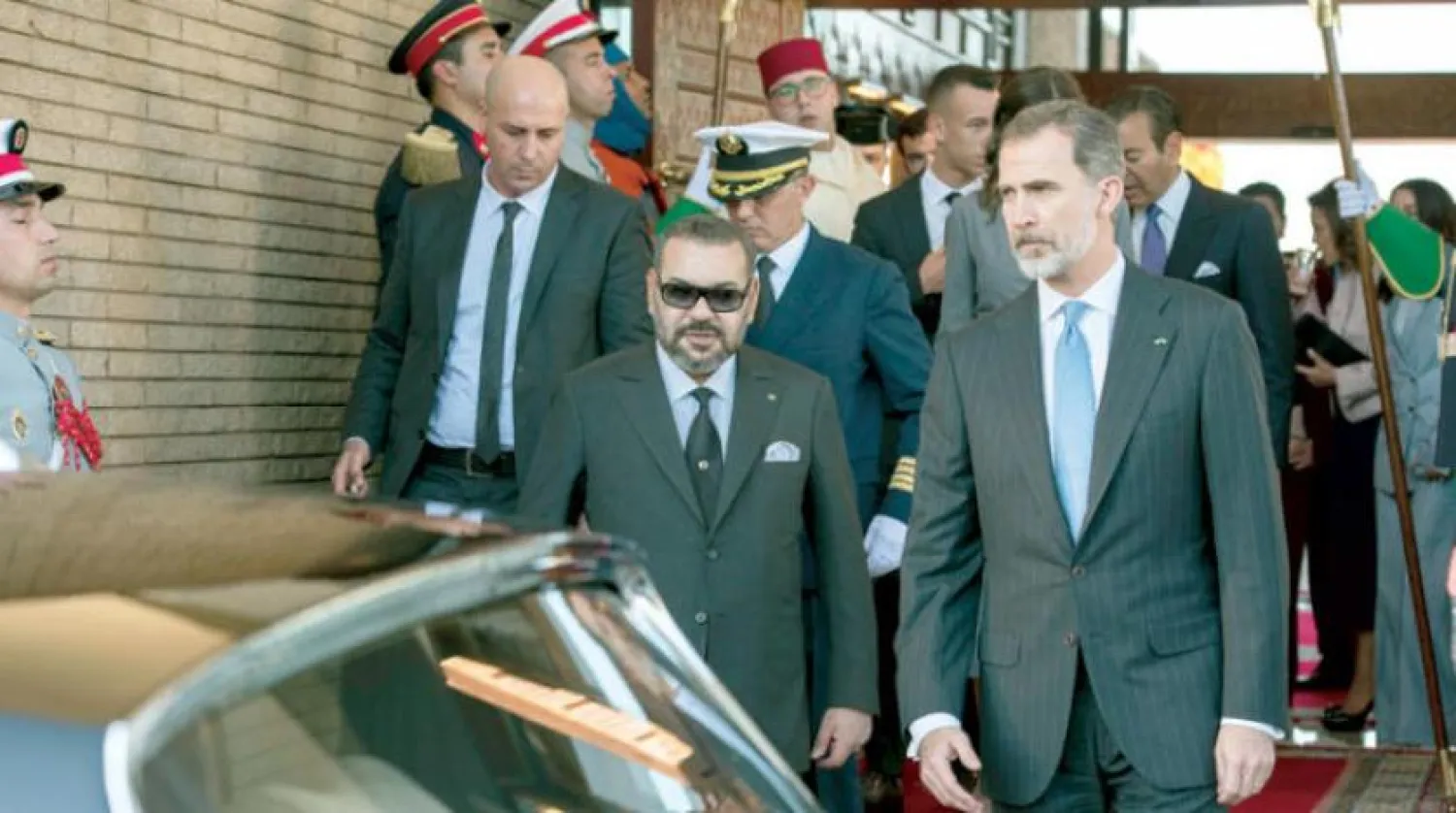Morocco’s King Mohammed VI discussed with Spanish King Felipe VI on Wednesday means to boost bilateral ties, the situation in north Africa, in addition to terrorism and migration, informed sources told Asharq Al-Awsat.
Spain’s King and Queen Letizia arrived in Morocco on Wednesday on a two-day visit. The trip is Felipe’s second visit to the country since he acceded to the throne in Spain, five years ago.
Several senior officials, including the ministers of foreign affairs, interior, industry and fisheries, accompanied him.
Morocco and Spain signed 11 agreements on Wednesday to bolster cooperation between the two countries.
The Moroccan news agency said the two countries signed an agreement to set up a third power link. The two neighbors already have two undersea links with a combined capacity of up to 1,400 megawatts (MW).
Eleven other agreements covering diplomacy, finance, culture, air transport and security were also signed.
On the security level, the interior ministers of the two states signed an agreement on cooperation in the fight against crime.
Morocco's flag carrier Royal Air Maroc (RAM) and Spain's IBERIA Airlines also signed a memorandum of understanding to step up cooperation.
The visit is expected to create a dynamic in the Spanish-Moroccan bilateral ties and would also foster the multidimensional strategic partnership uniting the two neighbors.
In the last couple of years, Spain became Morocco's top trade partner with more than $13.5 billion, while Morocco is the first recipient of Spanish foreign direct investment in Africa.
The two countries also have joint borders, putting terrorism and migration at the top of their concerns.
The visit also comes a few days after the European Parliament adopted the Morocco-EU Fisheries Agreement.
The agreement would allow vessels from 11 EU countries, including Spain, Portugal, Italy, France, Germany, Lithuania, Latvia, The Netherlands, Ireland, Poland and United Kingdom, to resume their fishing activities in Morocco’s waters.









